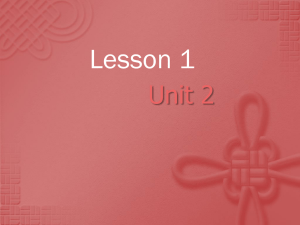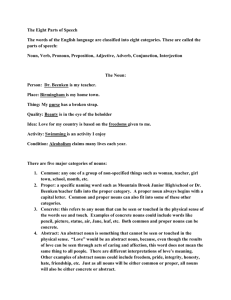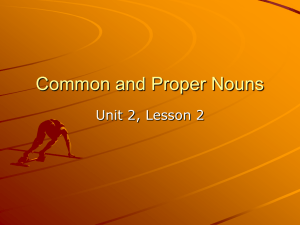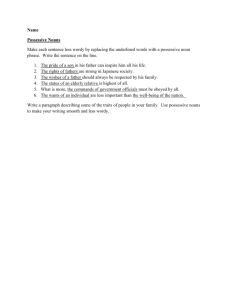Nouns A noun is a part of speech that identifies a person, a place
advertisement
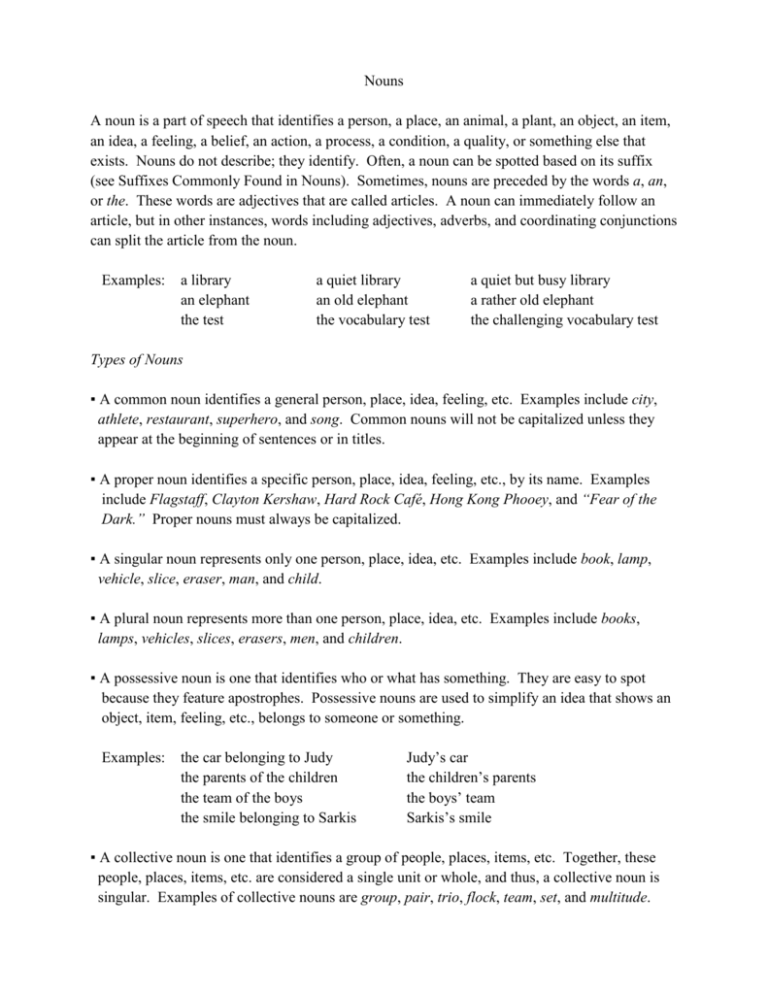
Nouns A noun is a part of speech that identifies a person, a place, an animal, a plant, an object, an item, an idea, a feeling, a belief, an action, a process, a condition, a quality, or something else that exists. Nouns do not describe; they identify. Often, a noun can be spotted based on its suffix (see Suffixes Commonly Found in Nouns). Sometimes, nouns are preceded by the words a, an, or the. These words are adjectives that are called articles. A noun can immediately follow an article, but in other instances, words including adjectives, adverbs, and coordinating conjunctions can split the article from the noun. Examples: a library an elephant the test a quiet library an old elephant the vocabulary test a quiet but busy library a rather old elephant the challenging vocabulary test Types of Nouns ▪ A common noun identifies a general person, place, idea, feeling, etc. Examples include city, athlete, restaurant, superhero, and song. Common nouns will not be capitalized unless they appear at the beginning of sentences or in titles. ▪ A proper noun identifies a specific person, place, idea, feeling, etc., by its name. Examples include Flagstaff, Clayton Kershaw, Hard Rock Café, Hong Kong Phooey, and “Fear of the Dark.” Proper nouns must always be capitalized. ▪ A singular noun represents only one person, place, idea, etc. Examples include book, lamp, vehicle, slice, eraser, man, and child. ▪ A plural noun represents more than one person, place, idea, etc. Examples include books, lamps, vehicles, slices, erasers, men, and children. ▪ A possessive noun is one that identifies who or what has something. They are easy to spot because they feature apostrophes. Possessive nouns are used to simplify an idea that shows an object, item, feeling, etc., belongs to someone or something. Examples: the car belonging to Judy the parents of the children the team of the boys the smile belonging to Sarkis Judy’s car the children’s parents the boys’ team Sarkis’s smile ▪ A collective noun is one that identifies a group of people, places, items, etc. Together, these people, places, items, etc. are considered a single unit or whole, and thus, a collective noun is singular. Examples of collective nouns are group, pair, trio, flock, team, set, and multitude.


